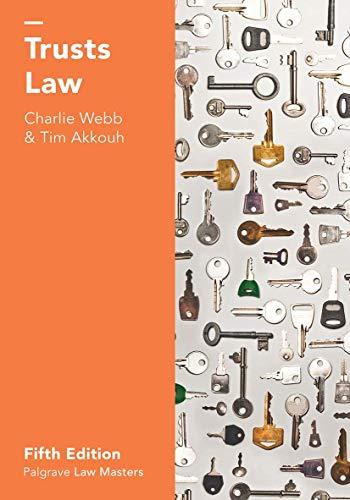Answered step by step
Verified Expert Solution
Question
1 Approved Answer
In 1961, Clarence Earl Gideon stood trial in Florida, accused of robbing a pool hall. Gideon was poor and could not afford a lawyer, so
In 1961, Clarence Earl Gideon stood trial in Florida, accused of robbing a pool hall. Gideon was poor and could not afford a lawyer, so he requested that the court provide one for him. Under Florida law at the the time, the state only provided lawyers for defendants accused of capital offenses, so the trial court did not appoint one. Gideon represented himself in trial, and he was convicted. While serving his prison sentence, Gideon petitioned the courts to overturn his conviction, arguing that the trial court's decision violated his constitutional right to be represented by counsel. The Supreme Court decided to throw out the conviction because, under the Supreme Court's understanding of the Sixth Amendment's Right to Counsel, providing a lawyer was necessary to ensure a fair trial. The Court then explained that the Sixth Amendment's guarantee of counsel is a fundamental and essential right, and, as such, the Fourteenth Amendment made it applicable to states, so that it applied to state trials. Thus, the Court extended the protection provided in the Sixth Amendment to require that states must provide counsel to defendants too poor to afford lawyers. Which of the following statements best explains the impact of this decision? Group of answer choices It replaced the states' various systems for provideing public defenders with a new system of granting federally mandated defense attorneys due to the requirements of the Sixth and Sixteenth Amendments. It established the Sixth
Step by Step Solution
There are 3 Steps involved in it
Step: 1

Get Instant Access to Expert-Tailored Solutions
See step-by-step solutions with expert insights and AI powered tools for academic success
Step: 2

Step: 3

Ace Your Homework with AI
Get the answers you need in no time with our AI-driven, step-by-step assistance
Get Started


